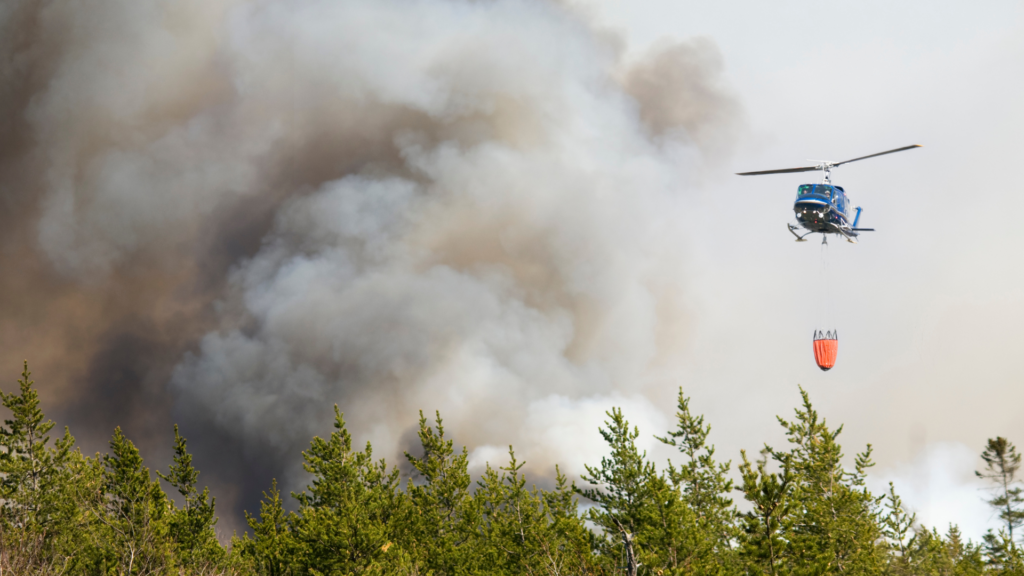Wildfires generated significant CO2 emissions in 2023-2024 while devastating parts of Canada and the Amazon, according to a new global report released on Wednesday.
These natural fires caused the emission of 8.6 billion tonnes of CO2 globally from March 2023 to February 2024 – 16% higher than the averages previously. CO2 emissions from forest fires were equivalent to around 15% of greenhouse gas emissions from human activity. A total of 3.9 million square kilometres of land have been scorched.
The findings were revealed in the inaugural “State of Wildfires” study, published in the Earth System Science Data journal. The research, conducted by the University of East Anglia and several other UK-based institutions, is updated each year. Only a relatively calm wildfire season in the African savannah stopped this 12-month period from setting a new global record for CO2 emissions.
According to the report, emissions from fires in Canada’s boreal forests were over nine times higher than the average from the past two decades, contributing close to a quarter of global emissions. Over 232,000 people were evacuated in Canada alone, highlighting the severe human impact of these fires.
Besides Canada, several other regions faced severe wildfires, including in the Amazon (Brazil, Bolivia, Peru, Venezuela), Hawaii, and Greece – which experienced its warmest winter on record and is now heading for its hottest summer.
Since May, hundreds of forest fires have broken out. Just yesterday a fire that broke out on Sunday reached the northeastern suburbs of Athens. One woman died in the blaze. Greece has requested help from other EU countries to fight the fire.
Last year was the first time the world exceeded the 1.5°C warming limit (established in the 2016 Paris Agreement) for a 12-month period. “The fires are becoming more frequent and intense due to climate warming, and both society and the environment are bearing the consequences,” warns the publication.

